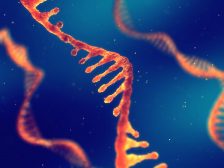Definition
noun, plural: antagonists
A biological structure or chemical agent that interferes with the physiological action of another
Supplement
Examples of antagonists are drugs that bind to cell receptors that prevent the agonists from eliciting a biological response. Other biological antagonists are muscles that occur in pairs. An antagonist muscle opposes the action of the agonist muscle, thus, helps in regulating movements.
Word origin: Greek antagonistes (an opponent)
Compare:
Related term(s):







